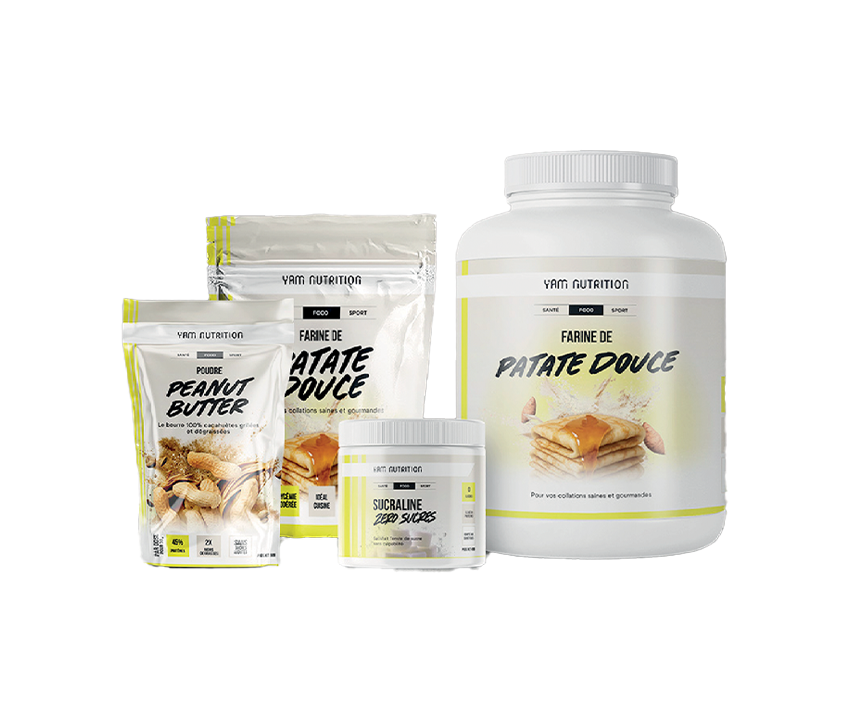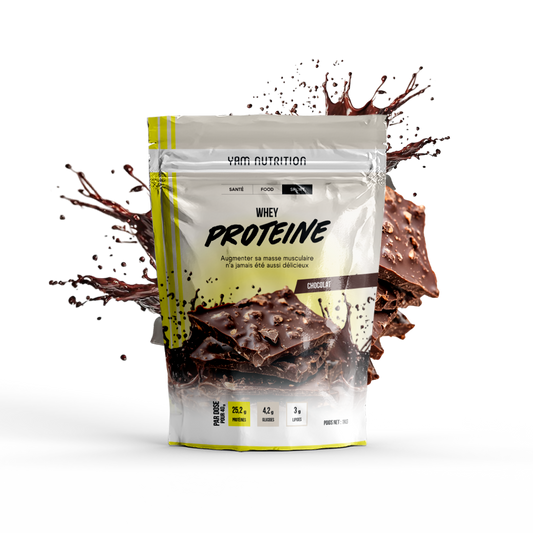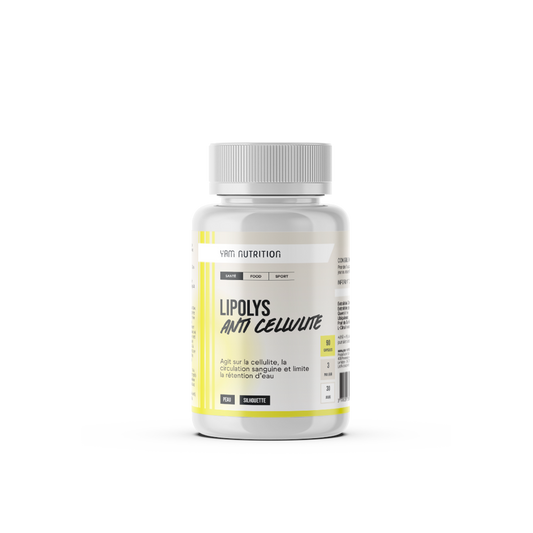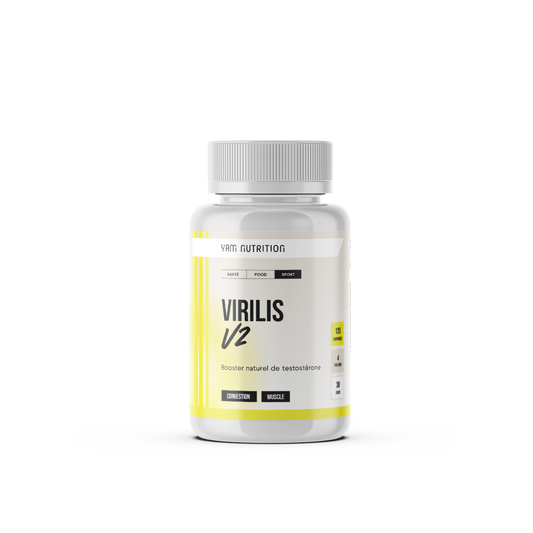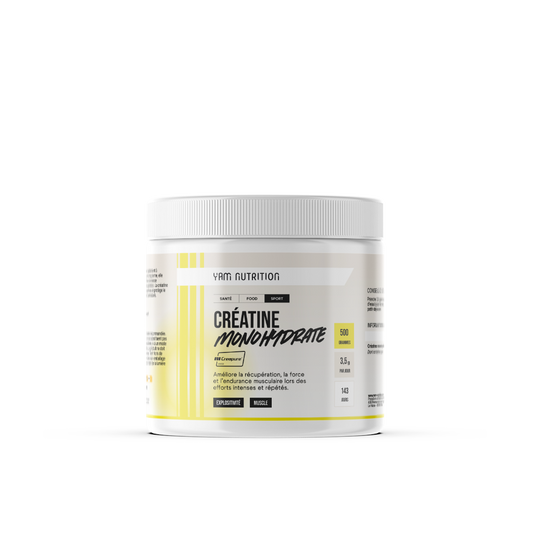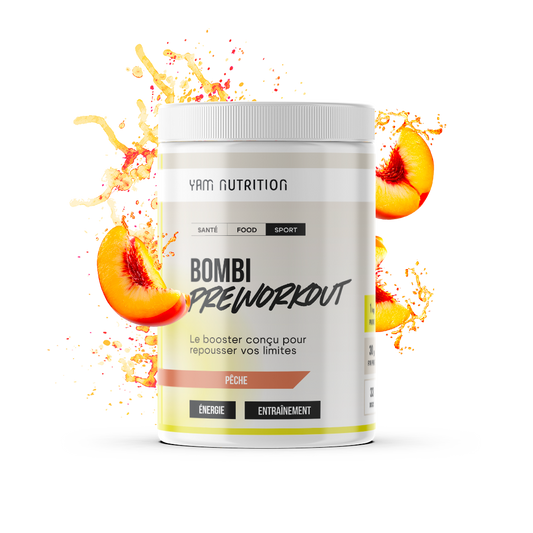Store and release energy for cross training

Sommaire
- Muscle energy is primarily provided by glycogen and carbohydrates
- What nutrition for cross-training?
- A Creatine Supplement for Cross Training?
- In terms of post-workout recovery, carbohydrates and proteins should be provided to your body
- Fats, a macronutrient whose importance is too often forgotten
- Common sense tips for better cross-training performance…
Practicing a high-intensity sport requires releasing a large amount of energy. Cross Training is a new sport, based on both the exercise of specific movements of resistance sports such as the deadlift, the clean and jerk or the squat but also on many pure endurance exercises. Some more specific exercises are also practiced by athletes. The practice of Cross Training is naturally intense, it requisitions energy on all levels, as much in explosiveness as in pure strength and endurance. In this particular sporting context, we could wonder about the way to store and release a maximum of energy during training. This is precisely the subject of this article.
As you know, cross-training physical activities are considered functional sports. That is, they aim to maintain the functionality of the human body. Naturally, this definition is a bit of an exaggeration since any intense or prolonged sporting activity is de facto functional. In this article, we will try to give you some nutritional advice to help you in your cross-training sporting practice...
Building muscle mass has never been so delicious The natural testosterone booster Improves strength, power and muscular endurance during intense and repeated efforts
Whey Protein
Sale price
From 37,90 €
Virilis V2
29,90 €
Sale price
29,90 €
Creatine Monohydrate Creapure®
Sale price
34,90 €
Muscle energy is primarily provided by glycogen and carbohydrates
As you know, energy begins with the storage of carbohydrates as glycogen in muscle tissue and the liver. Eating a diet rich in complex carbohydrates during meals, before and after your Cross Training workouts will allow you to ensure a energy release optimal during your workouts, as with any other intense sport. In fact, research shows that for short and medium-duration exercises (such as cross training), the energy required comes almost 100% from glucose. This underlines how essential carbohydrates are for physical performance. Only then will come sources of lipids, macronutrients with a high caloric density (9 calories/gram) and proteins to maintain the integrity of muscle mass.
What nutrition for cross-training?
Nutritionally, cross-training meets the fundamentals of high-intensity sports. This sport is quite specific since it combines short, high-intensity exercises with endurance exercises or exercise sequences with little recovery time. As a functional sport, cross-training uses all the energy systems in the human body. In this case, your sports diet must maximize energy accumulation in the form of glycogen and phosphocreatine. There are many carbohydrate-rich foods: cereals, rice, whole-wheat pasta, vegetables, and legumes.
Protein intake should also be prioritized to maintain muscle mass integrity and gain muscle after your workouts. Meat, fish, or eggs should be part of your diet if you do Cross Training intensely and frequently. Remember that red meat is a good source of heme iron, a trace element essential for the synthesis of red blood cells. Eggs are also a very good source of assimilable protein because they contain all the essential and non-essential amino acids, including a high proportion of leucine. In addition, amino acids can serve as energy substrates when carbohydrates are lacking, even if this is not their primary role.
Food sources of essential fatty acids contribute to the release of energy and the maintenance of your health.
Similarly, plant-based and animal-based sources of essential fatty acids should be consumed regularly. For example, high-quality olive oils provide omega-9 essential fatty acids with antioxidants. Oily fish like salmon provide good-quality protein and omega-3 fatty acids. These foods maintain muscle mass and actively contribute to optimal energy release when you practice high-intensity sports like cross-training or bodybuilding.
A Creatine Supplement for Cross Training?
At present, the creatine monohydrate is one of the most researched and safe ergogenic supplements. Cross-trainers would benefit from supplementing with creatine to help them deliver a little more muscle force during specific resistance exercises with weights. Creatine has also been shown to facilitate post-exercise recovery in numerous clinical studies with strength athletes. However, be sure to check the quality of the creatine you are supplementing with. The label Creapure from the manufacturer Alz Chem is known for its effectiveness and the absence of impurities it contains. The high-intensity exercises and exercise sequences that you practice with Cross Training such as barbell thrusters , medicine ball throws, deadlifts and burpees .
Muscle congestion and cross-training, how to promote it?
Cross-training strength exercises lead to strong muscle pumping, just like bodybuilding. Amino acids like arginine and citrulline support the synthesis of nitric oxide, a molecule that promotes muscle pumping during exercise. Again, these are amino acids that can help you perform better if you do cross-training or Crossfit © intensely and frequently. Bombi , our food supplement developed for energy and congestion, provides a concentrated dose of arginine and citrulline to promote this effect during your strength exercises.
In terms of post-workout recovery, carbohydrates and proteins should be provided to your body
If you practice Cross Training with sufficient intensity, you will quickly realize that you need to benefit from maximum energy during each workout. An obvious corollary to the release of such energy intensity is that post-workout recovery must be just as careful. Here too, carbohydrate intake will be the first key to good recovery. Then, it is a question of maintaining the integrity and functionality of your muscles. If the intensity of Cross Training exercises is too high, a lack of amino acids could reduce the repair of micro-tears caused by intense exercise. Thus, due to a relative deficiency in amino acids, you could lose performance and muscle strength instead of gaining them.
Whey contributes to your essential daily protein intake
To help meet your protein needs, a whey protein concentrate or isolate could be taken before or after your Cross Training workouts. With a great vanilla, chocolate or strawberry flavor, a shake provides you with between 20 and 30 grams of pure protein, to be enjoyed quietly. As you also know, amino acids contribute to energy synthesis, including the famous BCAA . However, we wanted to offer you a good supplement, combining the nine essential amino acids rather than just providing you with branched-chain amino acids.
With Bombi, You get all the essential amino acids, with caffeine, to take before or during your Cross Training workouts to support the intensity of the exercises. Bombi also provides you with citrulline, an amino acid precursor of arginine, itself a precursor of nitric oxide. This nitric oxide is a simple molecule that plays a decisive role in the phenomenon of muscle congestion. Although carbohydrates are the primary fuel for muscle, amino acids are easily metabolized into ATP, preventing them from accumulating as body fat, unlike carbohydrates when taken in excessive quantities.
Fats, a macronutrient whose importance is too often forgotten
Indeed, it is always very easy for athletes to forget the importance of fats. However, lipids contribute to the synthesis of androgenic hormones such as testosterone in men. Fats ideally contribute to energy release through their energy density while certain types of fats such as monounsaturated (Omega 9) prove particularly useful for the health of the body. Also think about the balance between Omega 6 and Omega 3 , particularly with regard to blood fluidity for example.
In terms of fatty acids, medium chain triglycerides or MCT (7 calories/gram) are also among the most useful fatty acids for energy release because they cannot be stored in the body. We find them, for example, in coconuts. Fats are also essential for the structure of your cell membranes, which are made up of phospholipids. In other words, providing your body with sufficient fats contributes, directly and indirectly, to proper muscle function. This is especially true since lipids are just as essential to the neuromuscular system. Fats make up the sheath that protects nerves, myelin. Indirectly, the transmission of nerves to muscles also depends on a sufficient intake of fatty acids.
Micronutrients, vitamins and minerals, contribute to better performance with Cross Training
Finally, to optimally release energy, it's important not to forget the importance of micronutrients. Vitamin A, B vitamins such as B3, B6, B9, and B12, vitamin D, and vitamin C must be included in your diet. Legumes, pulses and grasses contribute to essential B vitamin intake. You can also take them in supplement form with Nu Power for example. Finally, consider zinc and magnesium, minerals essential for healthy hormone release. To this end, we have developed Virilis V2 . This dietary supplement also provides you with nettle root and saw palmetto extract for healthy testosterone release. Additionally, intense exercise like cross-training increases the risk of catabolism if you don't get enough rest or if your recovery is insufficient. To this end, YAM Nutrition has developed Naturabolic, a dietary supplement based on ursolic acid and hesperidin to naturally stimulate muscle hypertrophy and strength gains.
Common sense tips for better cross-training performance…
With these tips in mind, we're confident you'll achieve consistent performance during your Cross Training workouts, while also enjoying excellent recovery. Naturally, a healthy diet isn't everything if you're not getting enough sleep after your workout. Don't neglect the importance of nighttime sleep; a severe lack of rest will cause your energy and performance levels to decline. Cross-training, like any high-intensity sporting activity, exhausts the body. Don't skip recovery days; they allow you to maintain your energy levels during training. A tired body will never go very far...
Eric MALLET
Spécialiste en Nutrition Sportive
